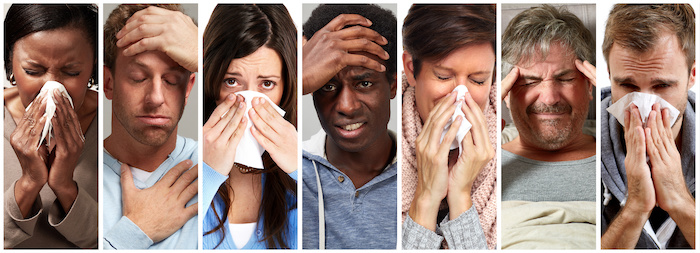Feeling stuffy, coughing, or sneezing can be the enemy of good rest. On top of that, not getting enough quality sleep can increase your chances of staying sick.
But did you know that dirty equipment can heighten the chances of your cold developing into something more serious?
Keep reading to uncover ways to stop pneumonia while using your CPAP equipment.
Sleep Apnea and Pneumonia: The Potential Risks
Pneumonia is a lung infection that occurs when a virus or bacteria gets into the lungs and can be fatal if the body is unable to combat the infection. When you have pneumonia, fluid accumulates in the lungs, which causes swelling and breathing difficulties.
Sleep apnea increases the risk of infection because patients are more likely to suck the fluid from their throat into their lungs when they have trouble breathing. Not to mention, the constant interruptions in sleep also weakens the immune system.
Can You Get Pneumonia From a CPAP Machine?
Using a CPAP machine raises your risk of getting pneumonia because it can transfer viruses and bacteria into your lungs if your CPAP equipment is not properly cleaned. This occurrence increases the chances of a condition like an upper respiratory tract infection developing into pneumonia. Even common illnesses like a cold or strep throat can turn into pneumonia as well.
Therefore, CPAP wearers should do everything in their power to reduce the risk of pneumonia by properly and consistently using their machine and keeping their equipment like their mask and hose clean.
Related Reading: Ultimate How-To Guide: Best Ways To Clean Your CPAP
CPAP Machine and Pneumonia: Mold and Fungus Formation
A heated humidifier and heated tubing makes your therapy air warm and moist. Although that helps with breathing and preventing dry mouth, it also attracts organisms that enjoy humid, warm atmospheres if it isn’t properly dried out after each use. Fungus, yeast, and mold particularly love these types of environments.
Harmful mold can breed and grow within your equipment, which is threatening to your health. Not only that, but these germs can also aggravate your airway and lungs, causing a bad cough. Additionally, it can lead to conditions like bronchitis and pneumonia.
The air pressure from your CPAP machine can potentially blow these harmful pathogens into your lungs. But don’t worry, the chance of this happening is relatively low, according to studies if you properly maintain your equipment.
If you take care of your machine, your chances are greatly reduced. However, if water is left in your machine for a long period of time without being used, the chance of mold development increases.
How to Avoid Further Illness
Thankfully, there are ways for you to treat your sleep apnea using a CPAP machine and decrease the risk of infection.
Clean Your CPAP Machine
Many CPAP pneumonia complications occur because of a dirty machine and filters. Check out your specific machine and filters on the cpap.com product’s page for detailed instructions.
Use Distilled Water
Putting distilled water in the humidifier minimizes the risk of infection. If your local water supply isn’t trustworthy, it’s best to use water that’s been purified.
Tap water can often contain harmful organisms or particles that can aggravate your condition. Plus, distilled water helps to prevent minerals from accumulating inside the water chamber.
Don’t Let Water Accumulate
As previously stated, mold can form in a CPAP machine if it sits for a long period of time. To ensure that this doesn’t happen, pour out the water after each use, clean out the device, and dry it completely.
Replace Your Supplies
Another essential component for keeping yourself safe from CPAP pneumonia and other infections is to regularly replace your CPAP supplies. Switch out the machine filters as recommended by the manufacturer, doing so will reduce the spread of bacteria.
Don’t Share Your CPAP Machine
This might seem like a no-brainer, but it’s important to note. You never know what illness another person has, so it’s best to avoid sharing altogether. In addition to that, do not buy or accept used CPAP equipment, especially second-hand masks and tubing.
Should You Use a CPAP If You Have Pneumonia?
Depending on the severity of your condition, it’s best to consult your doctor as to whether you should continue to use your CPAP machine with pneumonia.
However, if you have pneumonia it’s vital to ensure that your CPAP machine is thoroughly cleaned while you are sick and after you are feeling better. When you have pneumonia, your immune system is compromised and inhaling bacteria and viruses can aggravate it even more.
Final Thoughts
When you get sick, your unmaintained CPAP equipment and not receiving enough rest can cause your illness to develop into more.
Maintain the cleaning schedule for your machine, filters, mask, and hose as detailed by the manufacturer to keep your equipment working in tip-top shape.
Although it may be tough when you’re not feeling your best, try to get enough rest to strengthen your immune system and get you on your way to feeling better.





